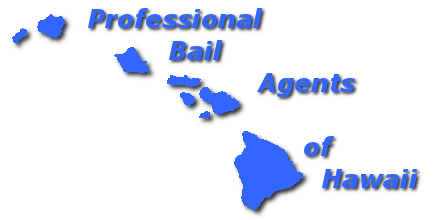The Obama Administration has again challenged the bail system, asserting in an amicus brief in a Georgia case that fixed bail schedules, which don’t account for the ability to pay, are unconstitutional.
This position was most recently asserted in an amicus brief filing in a case in Georgia. A previous blog from the Association of Los Angeles District Attorneys observed that a lawsuit in California is also challenging the bail system, although that lawsuit was denied class action status and an injunction earlier this year by a federal judge who issued a scathing decision.
Setting bail for those facing criminal charges is undoubtedly constitutional, as the 8th Amendment only prohibits “excessive bail.” In addition, the United States Supreme Court approved holding a person pre-trial without bail in a 1987 case, United States v Salerno.
The Obama Administration now seeks to challenge the bail requirement for indigent defendants as a violation of the 14th Amendment. However, as law professor Stephanos Bibas commented to the Los Angeles Times, the Supreme Court has not previously ruled that the equal protection clause forbids policies which may discriminate against the poor.
In California, Penal Code Section 1269c requires judges in each county to meet yearly and set a uniform bail schedule for that county. This schedule is used by police to set bail for persons booked into custody following arrest. If the arrestee does not bail out, he or she must appear for arraignment before a judge within 48 hours. Once the person appears in court, the judge can consider the crime charged, criminal history of the arrestee and any prior failures to appear in setting bail.
The determination of the judge is not final. The arrestee may request an additional hearing at which the arrestee is permitted to provide additional facts to challenge the bail amount.
The need for bail as a means to ensure appearances in court is readily apparent. Some could argue that the current bail system does not penalize the poor, it targets the rich. Judges routinely change bail amounts to reflect the wealth of a defendant. For example, a very wealthy person charged with a violent crime will see bail often increased to reflect the fact that the standard bail amount is a less meaningful incentive to appear in court than it would be to the average person charged with a crime.
If there is any doubt that not requiring bail leads to failures to appear in court, consider the impact of Proposition 47. In California, those arrested for misdemeanor offenses are rarely held pre-trial, instead usually being cited and released to appear in court at a later date.
When Prop. 47 reduced a significant number of felony offenses to misdemeanors, one of the early impacts was that failures to appear in court soared in 40 of the 58 counties surveyed earlier this year. In Monterey County, there was a 33% increase in failures to appear for misdemeanor offense following the passage of Prop 47. As a newspaper editorial noted, these criminals are not only failing to make their court dates; they aren’t getting drug treatment either.
If the Obama Administration position calling for the abolition of fixed bail schedules were to be adopted, the consequences in California would be significant. No longer could arrestees on felony offenses be booked into jail without appearing before a judge or commissioner.
Instead, those arrestees would have to appear before a judge or commissioner prior to being booked in jail, with a Deputy District Attorney and defense attorney required to be present at that hearing. Since arrests occur day and night 365 days a year, that means courtrooms opens 24 hours a day, 365 days a year, to conduct bail hearings, staffed by a judicial officer, court staff, deputy sheriff’s, a prosecutor and defense attorney. Since arrest reports would not have been written, the arresting officer would have to be present to give a probable cause declaration.
The case study cited by DOJ as an example of abusive practices was based upon an the arrest of an individual for a misdemeanor offense in Calhoun, Georgia — a town so small that court was only in session once a week. Never mind that Calhoun’s practice of holding individuals in custody for over 72 hours most likely violated other constitutional rights. The focus was the $160 bond required for release before the arrestee’s first appearance in court. By contrast, the California Penal Code requires that all arrested persons be brought before the court within 48 hours (weekends excepted).
The Obama Administration’s argument that all pre-appearance fixed bail schedules are unconstitutional on their face is unfounded, and if adopted would impose great financial costs upon California counties, not to mention the public safety implications.
As is typical with “reformers,” the Justice Department’s brief offers criticism, but little in the way of workable solutions. For example, the current bail in Los Angeles for the crime of murder is $2 million. If an indigent homeless person commits murder, is the Department of Justice suggesting that the bail should be reduced to, say, $100 or some similarly insignificant amount?
The assertion that it is unfair to detain a person charged with a crime pre-trial based “solely” on his or her inability to pay bail begs the question: Who would be in custody if they could pay the bond?
Every single person charged with a crime in California who is in custody pending arraignment or trial (other than those charged with capital murder which carries no bail) is there because the bail was set at an amount they were unable to pay.
The use of fixed bail schedules in California post-arrest, and before arraignment, is both respectful of public safety and an arrestee’s constitutional right. We await the decision of the 11th Circuit Court of Appeals and perhaps the United States Supreme Court for the final word.

